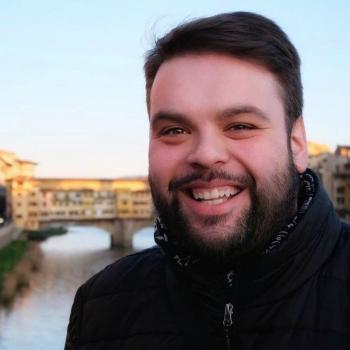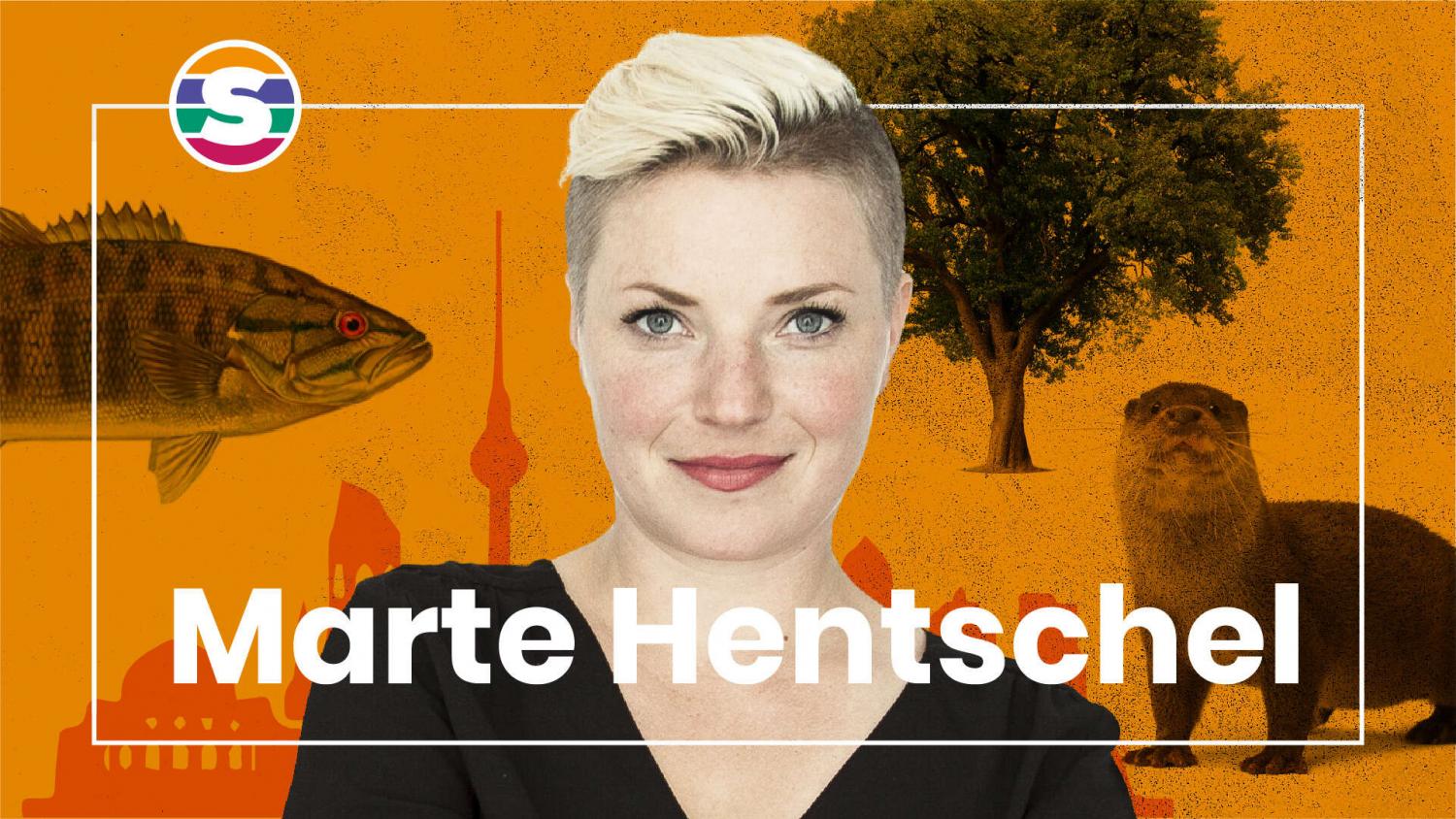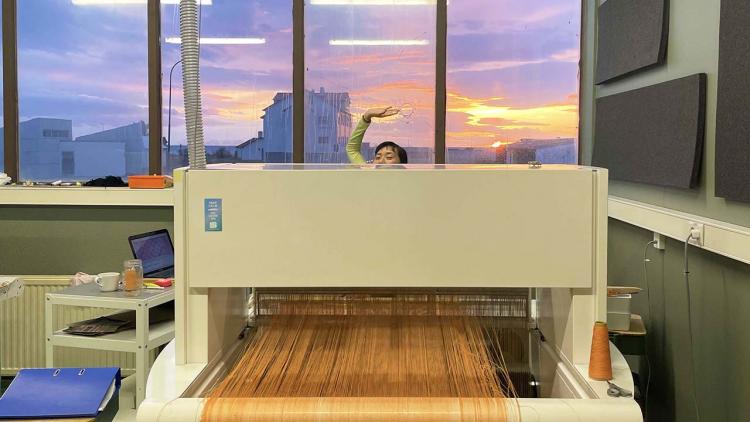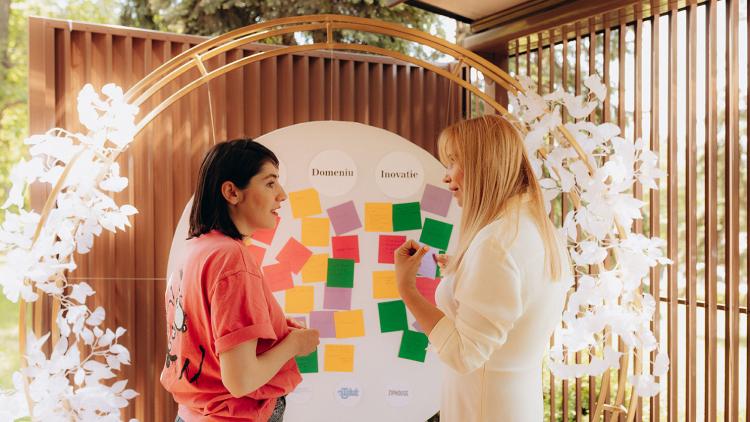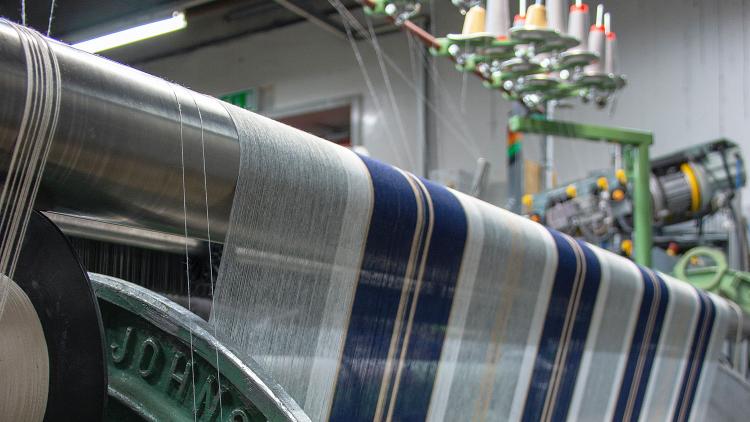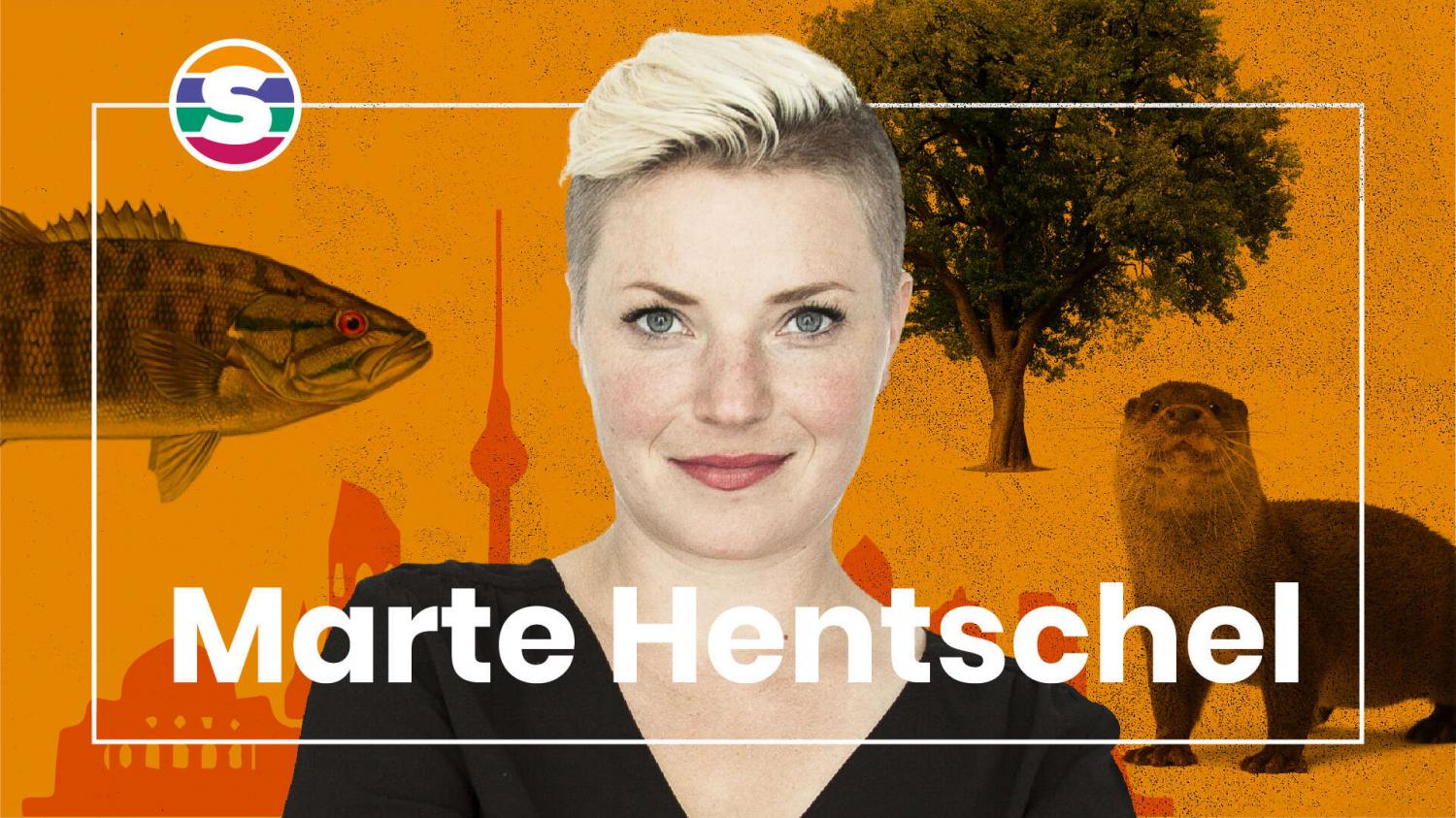
Marte Hentschel, "serial entrepreneur" and CEO at Sqetch Agency tells us about her work in digital, her very diverse background and her goal to change the T&C industry.
Marte Hentschel’s background is very diverse: having started off as a men’s tailor, she has experience in fashion and apparel design. She is one of the most important entrepreneurs in the textile industry in Germany and is now CEO at Sqetch, a software provider and innovation agency that helps search, connect and manage T&C production all in one place. Think Tinder, but with textiles!
For the shemakes Voices series, Marte is interviewed by science journalist Kerstin Helmerdig (Matrix GmbH).
Kerstin Helmerding: What is the absolute coolest thing you’ve had the chance to work on?
Marte Hentschel: There are actually two! I had this pretty cool project in the early 2000’s when I created the set and costume design of one of the largest German rock bands at the time. I had the chance to work with a diverse group of talented people and it was pretty awesome. Nowadays, running a digital business, I really like to work with geeks on things like machine learning and digital interfaces.
KH: You have a background in mens’ tailoring and studied Fashion and Apparel Design, but now you work in a different area. Tell us more about your current business and how you get there.
MH: My professional path seems a little bit weird, maybe like a roller-coaster, but it has always felt very natural to me. It takes almost 100 hours to create and tailor a man’s jacket, so at one point I decided to get involved with other talented and skilled people to create more pieces and make more people happy. It worked! The production agency grew and we thought about creating a database of manufacturers around the world providing an entrance to the global market, a place to find new customers that appreciate their craftsmanship. Now we have 30.000 companies using the platform.
KH: Was there a turning point that woke you up to the need to personally do something to change in the textile and fashion industry?
MH: Yes. When I started studying fashion design I had the chance to spend a few weeks in Cambodia. With my colleagues I went to visit this big garment factory and I realized that we weren’t really aware of how garments are produced and under which circumstances. That place was so huge that it almost looked like a city, a neighborhood of 40k people working no-stop. Designers are trained with no awareness of their social and environmental responsibility, so I felt the need to build a new more sustainable supply chain before even starting working as a designer. I actually never started working as a designer, but the supply chain issue is very complex and brings a lot of challenges so that you can spend at least a couple of lifetimes on it!
KH: From Matrix’s STEM Projects for young people we have learned how important volunteering is, for the projects but also for the volunteers themselves. What’s your experience with volunteering?
MH: I try to dedicate at least 20% of my work time to learning and volunteering. I don’t see a difference between the two because I think that volunteering is always learning as well. In my professional career I have been very lucky to be supported by a couple of great mentors that gave me the strength to jump into new projects and challenges. I always try to give a bit of that back.
KH: For young women in the T&C industry formal education is only part of their education. How important are skills in the technological sector, in engineering? And what about social skills and talent?
MH: There is a misconception about how we consider STEM subjects and design, aesthetics and soft skills. They’re not different and they actually work together. We need to bring engineering coding and development into design, management and leadership education. And we also have to train engineers to think like a designer, like a creator. We have to help educators in the academias to educate people towards more hybrid competency profiles.
KH: Do you think there is a need to encourage women to work in your sector? And how might we do that together?
MH: Diversity is always beneficial. Diverse teams are more successful, more productive, supportive and there’s less fluctuation. It’s a fact. The T&C sector is very stereotypic: the more down you go in the supply chain, the more women work in these fields. Even when I am teaching design classes, usually nine out of ten of my students are women, and when it comes to tech conferences, I often find myself being the only woman. Even though we feel like this is changing, the reality is still pretty stereotypic. There is still a lot to do.
KH: What advice do you have for women innovators?
MH: Don’t start alone. Team up with people who are supportive and have complimentary skills that may help you to learn and evolve. Don’t be afraid to ask. People are surprisingly supportive when you ask, very frankly, for help. That’s exactly what I did back in the day - let’s network!
Prior to the digital interview we asked Marte to respond to questions to get to know her better. The result is the image featured above that reflects Marte’s work, ideas and outlook on life.
If you were an animal what would you be, and why?
An otter. I love fish and water.
What city do you identify with and why?
Berlin - curious, hybrid, brittle, divers, ever changing
If you were to leave your favorite object to the next generation, what would it be and why?
The potato masher I got from my grandma - it makes damn good mashed potatoes!
What impact do you hope your work will have on the future of the sustainable fashion industry (or beyond!)?
I hope that sustainable fashion can be beneficial for everyone in the supply chain, an industry that attracts the best talent and most driven change makers. I'd be happy to be part of curing the industry's reputation problem and make it a healthier workplace.
Shemakes voices is the digital interview series that celebrates women innovators in the textile and clothing industry. Each month a partner of the shemakes consortium will dialogue with one of our advisors: a diverse group of women who have succeeded in building movements or services, or exploring innovations and technologies in the textile industry.

